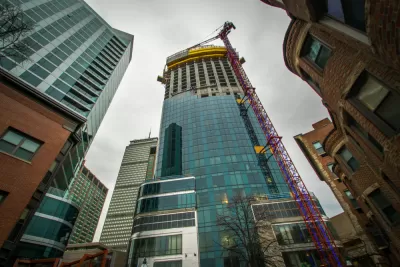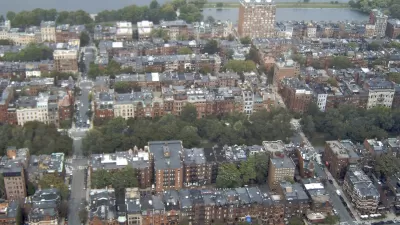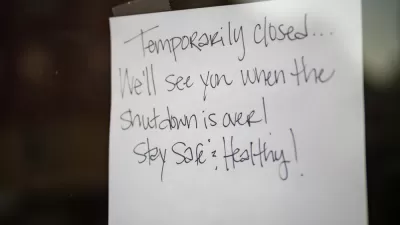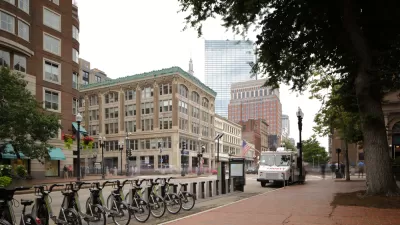Recent state legislation removed state preemption of the fees local governments can charge developers, called linkage fees. Boston is poised to act on this new power.

Boston Mayor Marty Walsh has proposed a 42 percent increase in the linkage fees paid by developers of office, lab, and other large commercial buildings in the city.
"The additional money could add tens of millions of dollars a year to city coffers, capitalizing on a life-science building boom to help fund badly needed affordable housing," writes Tim Logan to report the news. "But there also are worries that it could dampen a post-pandemic recovery for construction in Boston, and set a precedent for even higher assessments."
Mayor Walsh was scheduled last week to ask the Boston Planning & Development Agency to increase the linkage fees from $10.81 per square foot to $15.39. The city's linkage fee program was created in 1986 and hiked by 8 percent by Mayor Walsh in 2018, according to a press release from the mayor's office.
Why the sudden increase? The Commonwealth of Massachusetts recently granted the city the power to raise linkage fees more frequently. The same press release includes more: "The proposed increase follows the passage of legislation last month, originally introduced by Mayor Walsh as a Home Rule Petition, to give Boston more flexibility in adjusting Linkage fees. Previously, the BPDA was only allowed to adjust Linkage every three years based on inflation. The new law allows Boston to adjust the required payment and program guidelines, allowing Linkage to be more closely aligned with the market and fund affordable housing and workforce development programs."
As noted by Logan, the linkage fee increase would be one of the final acts of Mayor Walsh before departing to Washington to become the secretary of the U.S. Department of Labor in the Biden administration.
FULL STORY: Boston to big developers: Pay up

Alabama: Trump Terminates Settlements for Black Communities Harmed By Raw Sewage
Trump deemed the landmark civil rights agreement “illegal DEI and environmental justice policy.”

Planetizen Federal Action Tracker
A weekly monitor of how Trump’s orders and actions are impacting planners and planning in America.

The 120 Year Old Tiny Home Villages That Sheltered San Francisco’s Earthquake Refugees
More than a century ago, San Francisco mobilized to house thousands of residents displaced by the 1906 earthquake. Could their strategy offer a model for the present?

LA’s Tree Emergency Goes Beyond Vandalism
After a vandal destroyed dozens of downtown LA trees, Mayor Karen Bass vowed to replace them. Days later, she slashed the city’s tree budget.

Sacramento Leads Nation With Bus-Mounted Bike Lane Enforcement Cameras
The city is the first to use its bus-mounted traffic enforcement system to cite drivers who park or drive in bike lanes.

Seattle Voters Approve Social Housing Referendum
Voters approved a corporate tax to fund the city’s housing authority despite an opposition campaign funded by Amazon and Microsoft.
Urban Design for Planners 1: Software Tools
This six-course series explores essential urban design concepts using open source software and equips planners with the tools they need to participate fully in the urban design process.
Planning for Universal Design
Learn the tools for implementing Universal Design in planning regulations.
Ada County Highway District
Clanton & Associates, Inc.
Jessamine County Fiscal Court
Institute for Housing and Urban Development Studies (IHS)
City of Grandview
Harvard GSD Executive Education
Toledo-Lucas County Plan Commissions
Salt Lake City
NYU Wagner Graduate School of Public Service





























